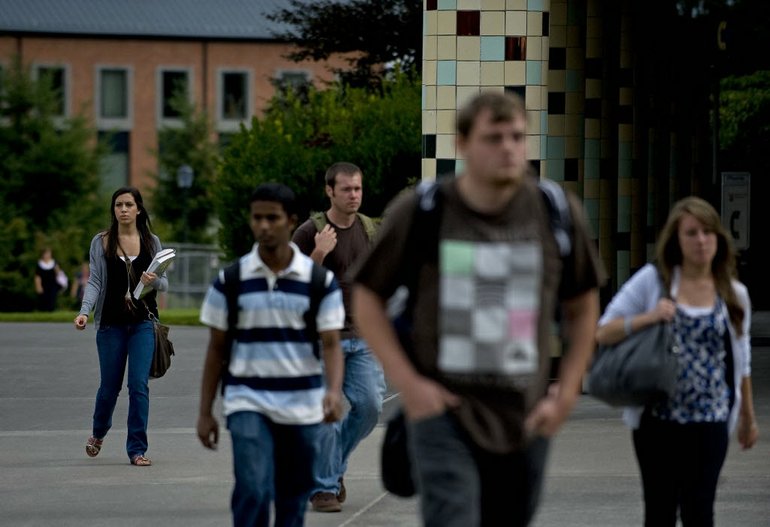SEATTLE — Education researchers at the University of Pennsylvania have a message for the citizens of Washington: state government is failing to meet its responsibility to provide enough opportunities for a college education in Washington.
While more jobs require a college degree and more kids come out of high school college-ready, the state’s four-year universities are not able to enroll more students, says a new report released Monday to coincide with the start of the 60-day legislative session.
“Washington really doesn’t have a plan for the future of higher education — even though they have one in writing and it’s very nice,” said researcher Joni Finney. “Unless the Legislature moves forward, the plan is meaningless.”
The chairman of the Senate Higher Education & Workforce Development Committee disagrees with the conclusion and some details in the report.
For example, the report says a quarter of the state’s citizens don’t have a high school diploma, but Sen. Rodney Tom, D-Medina, said that doesn’t include the people who left high school and went on to earn a GED certificate, which is equivalent to a high school diploma.
“We’re doing a lot of good things in higher education,” Tom said.
He noted a proposal from the governor to spend $7.6 million to pay for 775 more engineering student slots at the University of Washington and Washington State University. WSU continues to enroll more students each year despite cuts in state dollars for higher education. An open-source textbook program at the community colleges is saving students hundreds of dollars each quarter on books.
But Tom acknowledged that times are tough for state government and state universities in particular. Higher education is one of the few areas that have no state or federal protection, so when cuts are needed, lawmakers often look to university budgets.
Rep. Larry Seaquist, chairman of the House Higher Education Committee, said he would like the researchers to visit the state to testify before his committee.
Seaquist said lawmakers are already drafting a bill that answers some of the report’s criticisms concerning political leadership over higher education.
The University of Pennsylvania’s Institute for Research on Higher Education has been studying state higher education systems across the nation for many years. The institute’s most recent state-by-state analysis in 2008 found Washington was near the middle of the states in terms of college preparation, near the top in college completion and in the bottom third in terms of college participation.
Many of the conclusions of the report have been included in the results of state studies and reports, but Finney said that doesn’t mean anyone outside Washington’s “political elite” is aware of the problem.
“I don’t know that the population of Washington is really aware of how severe the problems are in the state,” she said.
Conclusions of the report include:
• By 2018, two-thirds of all jobs in Washington will require workers to have at least some post-high school education, while a third of adults ages 18-64 living in the state now have earned only a high school diploma.
• Washington lags behind most other states in the number of bachelor’s degrees produced per capita. It shares a place at the bottom of the list with Colorado.



